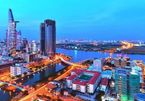According to Son, the new M&A wave began in 2019 when the US-China trade war broke out and prompted foreign investors to leave China.The Covid-19 breakout has accelerated the relocation process.

Among the 20 M&A deals in 2019 and in recent months of the year, the capital flow was mostly from Japan, South Korea, Thailand and China.
The businesses that caught the attention from investors were in the fields of logistics, financial service, banking, retail and supporting industries. Foreign investors are buying into Vietnamese enterprises to prepare for plans to relocate their factories to Vietnam.
There is still no clear evidence but analysts think Vietnam’s enterprises have been aware of the risk of being taken over by foreign investors, so they have joined forces to develop.
| The new M&A wave began in 2019 when the US-China trade war broke out and prompted foreign investors to leave China.The Covid-19 breakout has accelerated the relocation process. |
Retailers, for example, have signed cooperation agreements, while Vinamilk has bought Moc Chau to become stronger in the dairy industry.
However, Son stressed that the big concern is the investment from China, not from Japan and South Korea. The M&A deals made by Japanese and South Korean investors aim to prepare infrastructure (banking, logistics, retail and accommodation) for the relocation wave.
Meanwhile, Chinese businesses come to Vietnam to buy into Vietnam’s enterprises, which allow them to avoid high tariffs imposed by the US on Chinese imports.
Agreeing with Son that Vietnam needs to be wary of Chinese investors, an analysts warned Chinese may use Vietnam’s enterprises as a screen.
This may occur if Vietnam’s businesses are set up and then merge with businesses from China, Hong Kong and Taiwan. In the worst scenario, the US and other partners may impose high taxes on Chinese invested enterprises, which would affect Vietnam’s businesses.
What should Vietnam do?
The M&A wave from Japan and South Korea helps Vietnam’s businesses access capital, technology, management skill and helps scale up production in the context of big difficulties brought by the pandemic. If Vietnam stops the investment flow, its businesses will ‘die’ before they are taken over.
However, since Vietnam’s businesses are getting weaker after the blows from Covid-19, there must be state control over M&A activities.
“It needs to assess M&A deals and find out investors’ capability and technologies,” Son said.
However, he said the state should only intervene in specific business fields to avoid possible influences on economic security. As for other projects, the state should ‘open the doors widely’ to receive foreign capital.
Kim Chi

How should Vietnam reopen to other economies after COVID-19?
Experts believe that Vietnam should follow a gradual opening roadmap instead of an immediate opening to protect its great achievements in fighting against Covid-19.

Caution vital for economic resurgence
Vietnam’s economy grew 1.81 per cent in the first half of 2020
 The State needs to be wary of new business registration applicants and M&A deals related to Chinese investors, Bui Ngoc Son from the Institute of World Economics and Politics (IWEP) has said." itemprop="description" />
The State needs to be wary of new business registration applicants and M&A deals related to Chinese investors, Bui Ngoc Son from the Institute of World Economics and Politics (IWEP) has said." itemprop="description" />